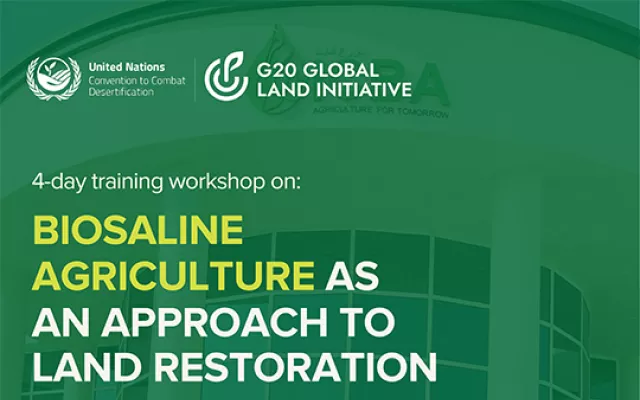Resolving Water Salinity and Shortages in Gaza Strip
8 May 2014
In the Gaza Governorates in Palestine groundwater, which is the main water supply is being seriously over extracted and increasingly unusable. This was the topic of a meeting held at ICBA Headquarters 4-5 May 2014.
As background to the discussions at the meeting, it was revealed that most of the groundwater wells tap the coastal aquifer system, which has an annual renewable recharge capacity of 55 million m3 (safe yield). However, the current extraction from the aquifer is three times the safe yield of the aquifer or 170 million m3 and it is expected that demand in 2020 will reach 260 million m3. Added to that, groundwater could become unusable by year 2016 due to depleting water and increasing salinity levels in the coastal aquifer.
In order to help Gaza Strip in resolving its water salinity and shortages issues, the Gulf Cooperation Council program to reconstruct Gaza in partnership with the Islamic Development Bank, the Arab Scientific Community Organization, and the ICBA held a workshop at the ICBA headquarter in Dubai from 4-5 May 2014. The aim of this meeting was to establish a communication platform between researchers and field workers so as to bridge the gap between knowledge and use and support the adoption of scientific and practical agricultural technologies suitable for the harsh conditions in Gaza. This platform will go some way to providing suitable water quality and quantity to sustain various uses of the water (e.g. household, agricultural, and industrial).
The scientific session of the meeting discussed potable water contamination: its causes, levels of contamination, and suggested practical and innovative techniques and solutions to prevent degradation of water quality, and how to remediate the polluted waters, particularly nitrate levels. In addition, the participants discussed main challenges facing agricultural development, salt-affected land and water, irrigation water systems, and the new technologies that could improve agricultural production. The participants concluded with recommendations for alternative solutions to reduce the water gap and to mitigate the deterioration of the coastal aquifer.
Dr. Khalil Ammar, Water Resources Management Scientist at ICBA, said “This meeting was very fruitful; we came out with very encouraging recommendations that included short term and long term strategic solutions for tackling the water and agricultural issues. In addition, there was a general consensus on the importance to amplify research, knowledge sharing, and networking.”










